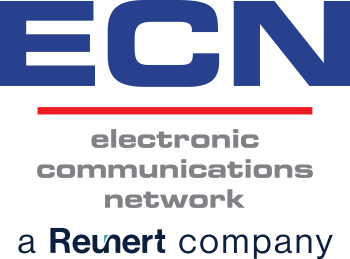Hybrid workplaces, once a foreign concept to most companies, have now become a mainstream work model that allows employees to work from home or in the office, depending on the need. To accommodate this time-saving and productive model, businesses are investing in technology that better supports both employees and clients. Here’s a look at some of the latest technology options being adopted into the hybrid office.
What are the types of hybrid workplaces?
The type of technology you will require for your employees will depend on the hybrid office model that you decide to go with. The two main types include:
– Remote-centric hybrid
This is where the employees will primarily work remotely but, at times, they will be required to come into the office or there will be teams that are required to work from the office space.
– Hybrid remote office
In this model, the employees are given the option of coming in on certain days or choosing which days they would prefer to be in the office. This allows for necessary social interaction and idea-sharing while also offering the cost and space savings of remote working.

What are hybrid workplace technologies?
- Hosted PBX
For a hybrid workplace to operate efficiently, communication technology is key. And, in terms of modern business telecom solutions, you’ll want to look at the hosted PBX (private business exchange) system. This is a cloud-based system that is hosted off-site over the internet, rather than the physical business premises. Calls can be switched between different lines within the organisation to connect with people off-site. This is a much more cost-effective option as there’s no need to invest in software, equipment, training and daily maintenance. The hosted PBX is an ideal hybrid workplace solution as employees can plug their desk phones in at home and carry on as if they were in the office.
- Softphone application software
As an addition to the Hosted PBX, softphone applications run on your smart phone, tablet or computer. The application itself mirrors a dialling pad, like your dialler on your smartphone and allows you to make and receive calls without the need for an actual telephone set. Softphone applications are designed for internet phone services, commonly referred to a Voice over Internet Protocol (VoIP), inheriting all the features and functions available from the Hosted PBX.
- Security software
With employees working remotely, they will be dealing with sensitive client data and information off-site. This means that you’ll have to implement much more stringent security measures to protect your client and business data from the ongoing threat of cybercrime. This means not only investing in cutting-edge security software, but it will also mean that employees will need work-owned devices – computers, cellphones or hard drives – rather than depending on their own.
- Collaboration software
There was a sudden explosion of collaboration software when Covid-19 hit, and everyone was forced to work remotely. Collaboration software has become more sophisticated, with features that allow you to track the progress of projects, cloud storage, file-sharing tools, document synchronisation and whiteboards, among many others. You will need to decide what collaboration software best suits your business needs, and consider investing in it to unlock all the features (rather than opting for just the free version).
- Video conferencing software
Similarly, you’ll need to consider the best video conferencing software to meet your business needs. No matter the size or type of business, you will be required to host or be involved in online meetings and conferences from time to time. Video conferencing software is also a great way for your team to keep connected no matter where they are.
- Time-tracking tools
While it’s true that certain employees can work without constant supervision, others will take advantage of the hybrid work situation and do as little as possible. That’s why time-tracking tools are an important technology for the hybrid workplace. These can include biometric time clocks which use fingerprint or face capture technology to identify colleagues with authentication offered via smartphones or tablets. This can also be used for enhanced security features.
“Hybrid work the default in 2024, half of work performed offsite: 81% believe hybrid work will be the foremost working model in 2024, with 56% of work done offsite.” – PR Newswire
Read More: Cloud PBX phone systems for law firms
Make sure you’re kitted out with all the relevant technology to facilitate a remote working environment. This way, you’re getting the best of both worlds and enjoying enhanced productivity. Contact ECN for all your hybrid workplace needs.

